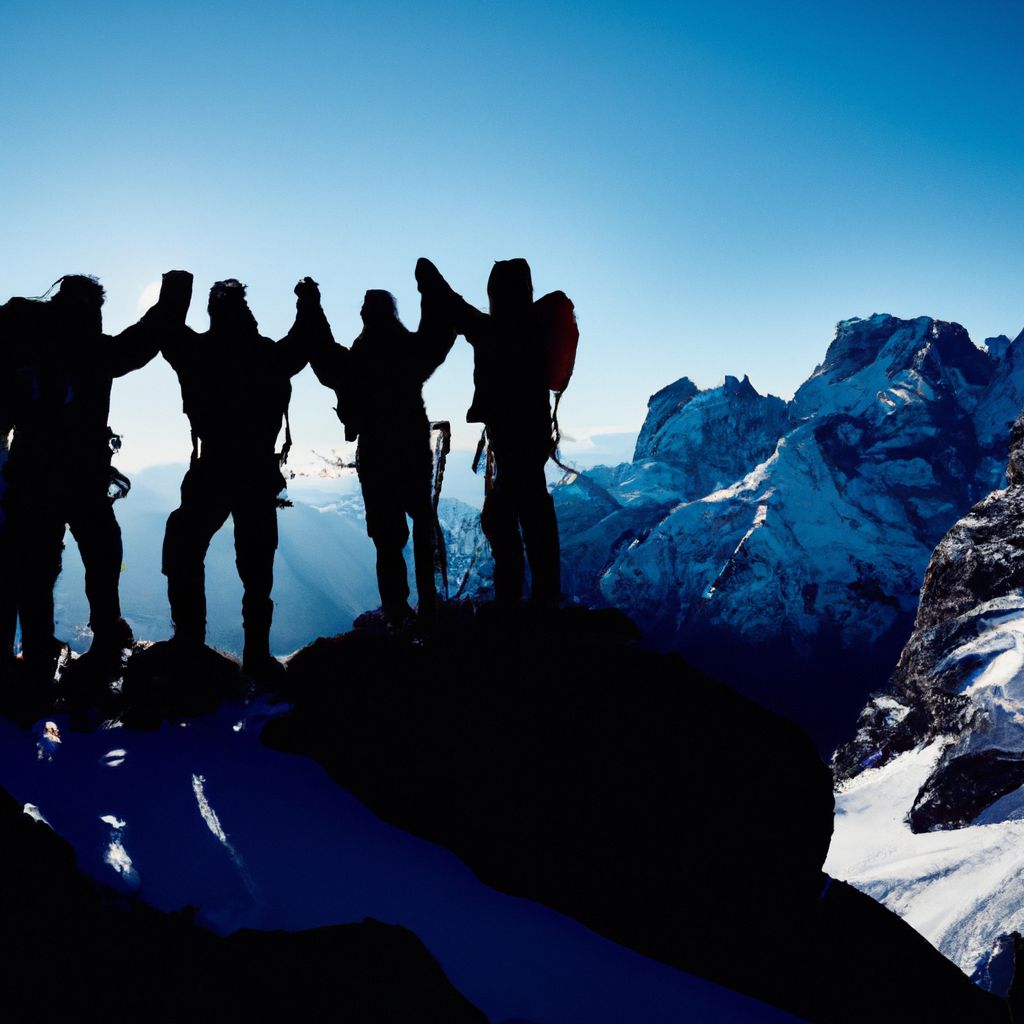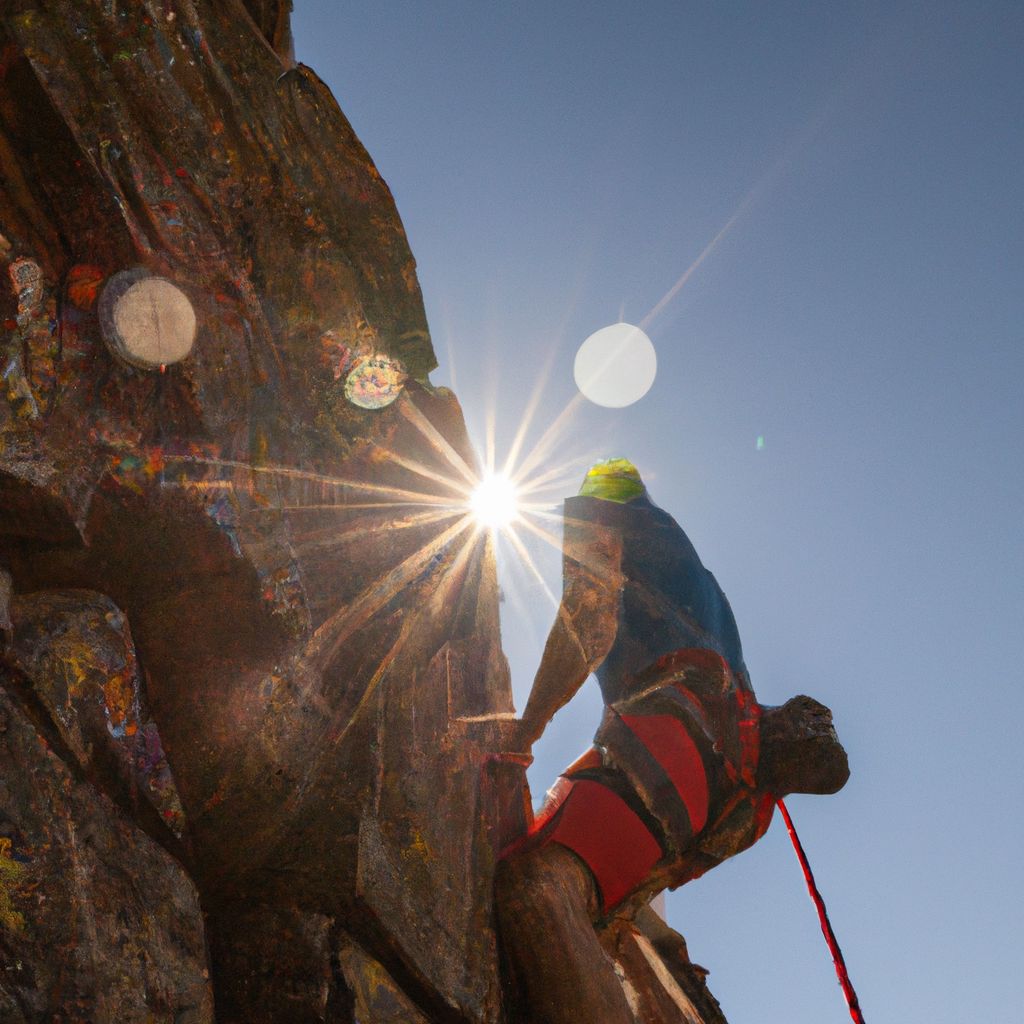- Introduction to Mountaineering
- The Adventurous Aspect of Mountaineering
- Mental Health Benefits of Mountaineering
- Mountaineering and Mindfulness
- Social Benefits of Mountaineering
- Physical Health Benefits of Mountaineering
- Conclusion: Embracing Mountaineering for Psychological Well-being
Introduction to Mountaineering

Mountaineering, also known as mountain climbing, is a hobby and sport that has experienced a surge in popularity over recent years. It is an activity that involves climbing mountains, often with the goal of reaching the summit. It can be a recreational activity, a competitive sport, or a profound spiritual experience.
Mountaineering began as an attempt to reach the highest point of unclimbed big mountains. It has gradually evolved into a passion and hobby for many, thanks to its mix of outdoor adventure, physical challenge, and mental stimulation. According to The International Mountaineering and Climbing Federation (UIAA), the number of people participating in mountaineering activities has seen a consistent increase over the past decade.
But beyond the physical rewards, mountaineering offers significant psychological benefits. Mountaineering is not just about the adrenaline rush; it's a journey that offers profound mental health benefits, as it involves a high level of mental discipline, focus, and resilience. This article will delve into the psychological benefits of mountaineering, as backed by research, statistics, and expert opinions.
The Adventurous Aspect of Mountaineering

The thrill of mountaineering is undeniable. There's something incredibly exhilarating about conquering a peak, about standing at the top of a mountain and looking down at the world below. It's a feeling of accomplishment that is hard to match with any other recreational activity.
Mountaineering is all about overcoming challenges. It requires climbers to face and overcome a variety of obstacles, both physical and mental. From navigating difficult terrains to dealing with unpredictable weather conditions, every mountaineering expedition brings its unique set of challenges.
As American mountaineer and author, Ed Viesturs once said, "Climbing is a passion, a devotion, a total commitment. It's about challenging yourself and pushing your limits."
Overcoming these challenges can lead to increased confidence and self-esteem. As per a study published in the Journal of Leisure Research, the experience of successfully overcoming physical challenges in outdoor activities like mountaineering can lead to significant boosts in self-confidence and self-esteem. This sense of accomplishment can then translate into other areas of a person's life, improving their overall self-perception and resilience.
Mental Health Benefits of Mountaineering

Mountaineering is not just a physical activity; it's a mental one as well. The mental health benefits of mountaineering are numerous and supported by a growing body of scientific research.
Stress Relief: One of the most significant psychological benefits of mountaineering is stress relief. A study published in the International Journal of Environmental Research and Public Health found that participation in outdoor activities like mountaineering can reduce stress levels and improve mood. The study attributed this effect to the combination of physical activity, exposure to nature, and the mental challenge associated with such activities.
Improved Focus and Concentration: Mountaineering requires a high level of focus and concentration. Whether it's navigating a tricky path or making a difficult climb, mountaineers need to stay focused on the task at hand. A research article in the Journal of Environmental Psychology found that engagement in activities requiring focused attention, like mountaineering, can improve cognitive functioning, including concentration and focus.
Enhanced Mood: The physical exertion involved in mountaineering releases endorphins, the body's natural mood enhancers. According to a study in the Journal of Health Psychology, regular participation in physical activities like mountaineering can have positive effects on mood and emotional wellbeing.
Furthermore, the sense of achievement felt after reaching a summit can also significantly enhance a person's mood, leading to feelings of happiness and satisfaction.
Mountaineering and Mindfulness

When we talk about mountaineering and mental health, it's critical to mention the concept of mindfulness. Mindfulness is the practice of being fully present in the moment, aware of where we are, and what we’re doing, without getting overly reactive or overwhelmed by what’s happening around us.
Mountaineering naturally encourages mindfulness. When you're on a mountain, you need to be completely present, focused on your movements, your breathing, and your surroundings. There's no room for distractions or wandering thoughts. You're fully engaged in the here and now.
Research supports the connection between mindfulness and mountaineering. A study published in the Journal of Health Psychology found that outdoor activities like mountaineering that require a high level of present-moment awareness can foster mindfulness. The study also highlighted that mindfulness could reduce anxiety, promote relaxation, and improve overall mental well-being.
Thus, mountaineering can be seen as a form of moving meditation, where the act of climbing and focusing on the task at hand can help individuals stay grounded, reduce their anxiety levels, and foster a sense of inner peace and relaxation.
Social Benefits of Mountaineering

Mountaineering is often a team activity, which adds a significant social dimension to its list of benefits. The teamwork, camaraderie, and social interactions that are part of mountaineering expeditions can lead to improved interpersonal skills and relationships, contributing to better mental health.
Teamwork: Mountaineering often involves climbing in groups or teams. It requires collaboration, communication, and mutual support, fostering a sense of teamwork. According to a study in the Journal of Leisure Research, teamwork experiences in outdoor activities like mountaineering can enhance social skills, promote empathy, and improve communication abilities.
Camaraderie: The shared experiences, challenges, and triumphs in mountaineering foster a sense of camaraderie among climbers. This can lead to strong, deep-rooted friendships that enhance social well-being. A report by the American Psychological Association suggests that such friendships can significantly contribute to emotional well-being, resilience, and overall mental health.
Social Interactions: The social interactions during mountaineering expeditions, whether it's talking around a campfire or strategizing a climb, can help individuals develop strong social skills. These interactions can enhance a person's ability to connect with others, improve their emotional intelligence, and boost their self-esteem.
In conclusion, the social benefits of mountaineering can have a positive impact on an individual's mental health, enhancing their emotional well-being and providing them with a supportive community.
Physical Health Benefits of Mountaineering

While the focus of this article is on the psychological benefits of mountaineering, it's important to acknowledge the significant physical health benefits that this activity offers. The physical exertion involved in mountaineering can lead to improved cardio-respiratory fitness, muscle strength, and endurance.
Cardio-Respiratory Fitness: Mountaineering is a cardiovascular activity that can significantly improve heart health and lung capacity. According to a study published in the European Journal of Applied Physiology, mountaineering can be an effective way to enhance cardio-respiratory fitness.
Muscle Strength and Endurance: The act of climbing a mountain involves various muscle groups, leading to improved muscle strength and endurance. Research in the Journal of Strength and Conditioning Research found that mountaineering can lead to significant improvements in muscle strength, particularly in the lower body and core muscles.
Physical health and psychological well-being are closely tied. The World Health Organization (WHO) states that "Health is a state of complete physical, mental, and social well-being and not merely the absence of disease or infirmity." Thus, the physical benefits of mountaineering can contribute to overall psychological well-being, creating a positive feedback loop of physical and mental health benefits.
Conclusion: Embracing Mountaineering for Psychological Well-being

Mountaineering offers a plethora of psychological benefits. From the thrill of adventure and the confidence that comes from overcoming challenges, to the stress relief, improved focus, and mood enhancement, mountaineering can contribute significantly to your mental health. It encourages mindfulness, helping individuals stay present and reduce anxiety. The social aspects of mountaineering, including teamwork, camaraderie, and social interactions, can also lead to improved interpersonal skills and relationships, further enhancing mental well-being.
Additionally, the physical health benefits of mountaineering, such as improved cardio-respiratory fitness, muscle strength, and endurance, can contribute to overall psychological well-being.
With all these benefits in mind, it's clear that mountaineering is not just a recreational activity, but a path to overall mental and physical well-being. If you're intrigued by the benefits of mountaineering, why not give it a try?
Getting started with mountaineering requires careful planning and preparation. Here are a few tips:
- Start Small: You don't need to scale Everest on your first go. Start with smaller peaks and gradually work your way up as your skills and confidence improve.
- Get Fit: Mountaineering is physically demanding, so it's crucial to be in good physical shape. Regular cardio and strength training can help prepare your body for the challenges of mountaineering.
- Learn the Basics: It's essential to learn the basics of mountaineering, including navigation, knot-tying, and safety procedures. Consider taking a mountaineering course or hiring a guide for your first few climbs.
- Invest in Good Gear: Good quality mountaineering gear can make a big difference in safety and comfort. Invest in sturdy boots, warm clothing, and reliable climbing equipment.
Embrace the adventure of mountaineering and reap the physical and psychological benefits this activity has to offer.








